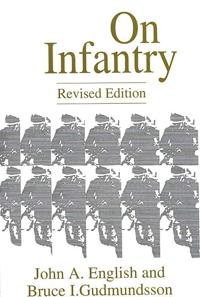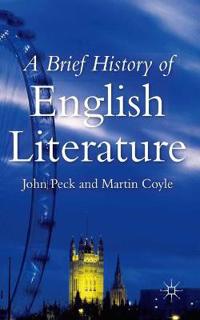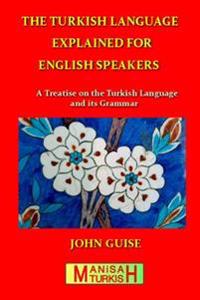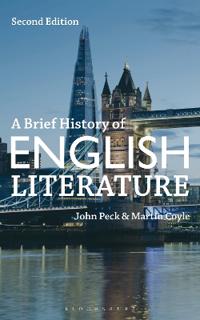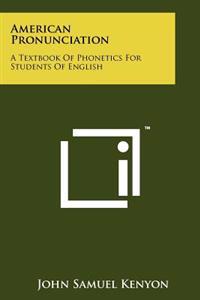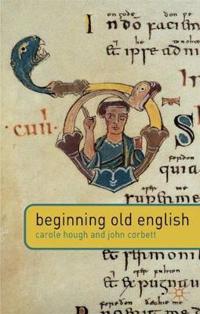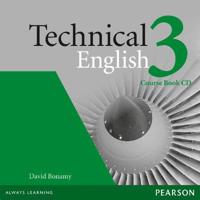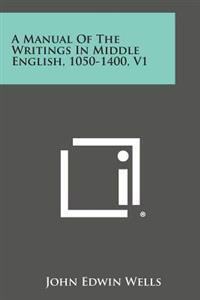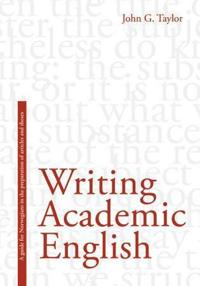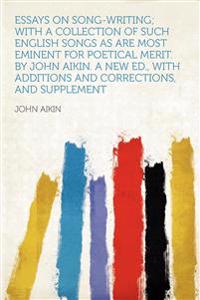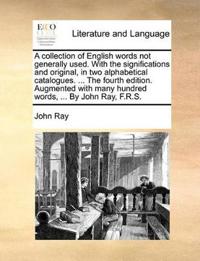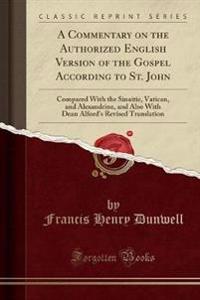On Infantry (Pocket)
avJohn A. English, Bruce I. Gudmundsson, John A. English
ISBN: 9780275949723 - UTGIVEN: 199411This volume tells the story of infantry in the 20th century and its impact on the major conflicts of our time. Its purpose is to provide the reader - whether infantryman or not - with insights on the role that infantry plays in the larger battle and how that has helped shape the world that we live i[...]
A Bridge To Gcse English - Student Book (Pocket)
avSarah Darragh, Phil Darragh, John Parry
ISBN: 9780007415953 - UTGIVEN: 2011-03-01Give your students a flying start to GCSE English! Make a smooth transition from Key Stage 3 to GCSE. Designed to help students develop the skills and knowledge they will need for exam and controlled assessment success, A Bridge to GCSE helps you align your KS3 curriculum to the new GCSEs in Englis[...]
John Hughlings Jackson: The Father of English Neurology (Inbunden)
avMacdonald Critchley, Eileen A. Critchley
ISBN: 9780195123395 - UTGIVEN: 1998-05-01Beginning Old English (Pocket)
avCarole A. Hough, John Corbett
ISBN: 9780230301405 - UTGIVEN: 2013-05-13This simple introduction to Old English focuses on how the language works, using accessible illustrations from surviving texts and showing how features of present-day English have their roots in this stage of the language. As well as being updated, the new edition has been expanded to include a chap[...]
A Brief History of English Literature (Häftad)
avJohn Peck, Martin Coyle
ISBN: 9780333791776 - UTGIVEN: 200203"A Brief History of English Literature" provides a lively introductory guide to English literature from "Beowulf" to the present day. The book is written in a lucid style to enable the reader to engage fully with the narrative and easily understand the texts in relation to the social, political and [...]
The Turkish Language Explained for English Speakers: A Treatise on the Turkish Language and Its Grammar (Häftad)
avJohn Guise
ISBN: 9780473265083 - UTGIVEN: 2014-01A Brief History of English Literature (Häftad)
avJohn Peck, Martin Coyle
ISBN: 9781137352668 - UTGIVEN: 2013-11This new edition of an established text provides a lively, concise and up-to-date historical overview of the story of English literature. Focusing on how writing both reflects and challenges the periods in which it is produced, John Peck and Martin Coyle combine close readings of key texts with rece[...]
American Pronunciation: A Textbook of Phonetics for Students of English (Häftad)
avJohn Samuel Kenyon
ISBN: 9781258224172 - UTGIVEN: 2011-12Beginning Old English (Häftad)
avCarole A. Hough, John Corbett
ISBN: 9781403993502 - UTGIVEN: 200612Provides an introduction to Old English for students with little or no linguistic knowledge. This work focuses on the explanation and demonstration of how the language works, using illustrations from simplified Old English texts and showing how many features of English have their roots in this stage[...]
Technical English Level 3 Coursebook CD (CD-bok)
avRaymond A. Serway, John W. Jewett
ISBN: 9781408229453 - UTGIVEN: 201101Technical English Level 3 covers the core language and skills that students need to communicate successfully in all technical and industrial specifications.[...]
New AQA Science GCSE Science A Revision Guide (Pocket)
avPauline C. Anning, Nigel English, Niva Miles, John Scottow
ISBN: 9781408508237 - UTGIVEN: 2011-06-10Aqa Gcse English Skills For Achieving An A* (Pocket)
avJohn Nield, Graham Fletcher, Unsah Tabassum
ISBN: 9781444110814 - UTGIVEN: 2010-06-25New student book aimed at developing higher level skills in reading, writing, speaking and listening.[...]
A Manual of the Writings in Middle English, 1050-1400, V1 (Häftad)
avJohn Edwin Wells
ISBN: 9781494115111 - UTGIVEN: 2013-10Writing academic English; a guide for Norwegians in the preparation of articles and theses (Pocket)
avJohn G. Taylor
ISBN: 9788251921237 - UTGIVEN: 2007Experience has shown an increasing need for a handbook for students, researchers and anyone, in fact, requiring to write in English but where this is not their native tongue. Do I really need a comma there? Should that be a colon - or a semicolon? Does the title go above or below the diagram? Is the[...]
A Commentary on the Authorized English Version of the Gospel According to St. John (häftad)
ISBN: 9781331682035 - UTGIVEN: 2015-09

